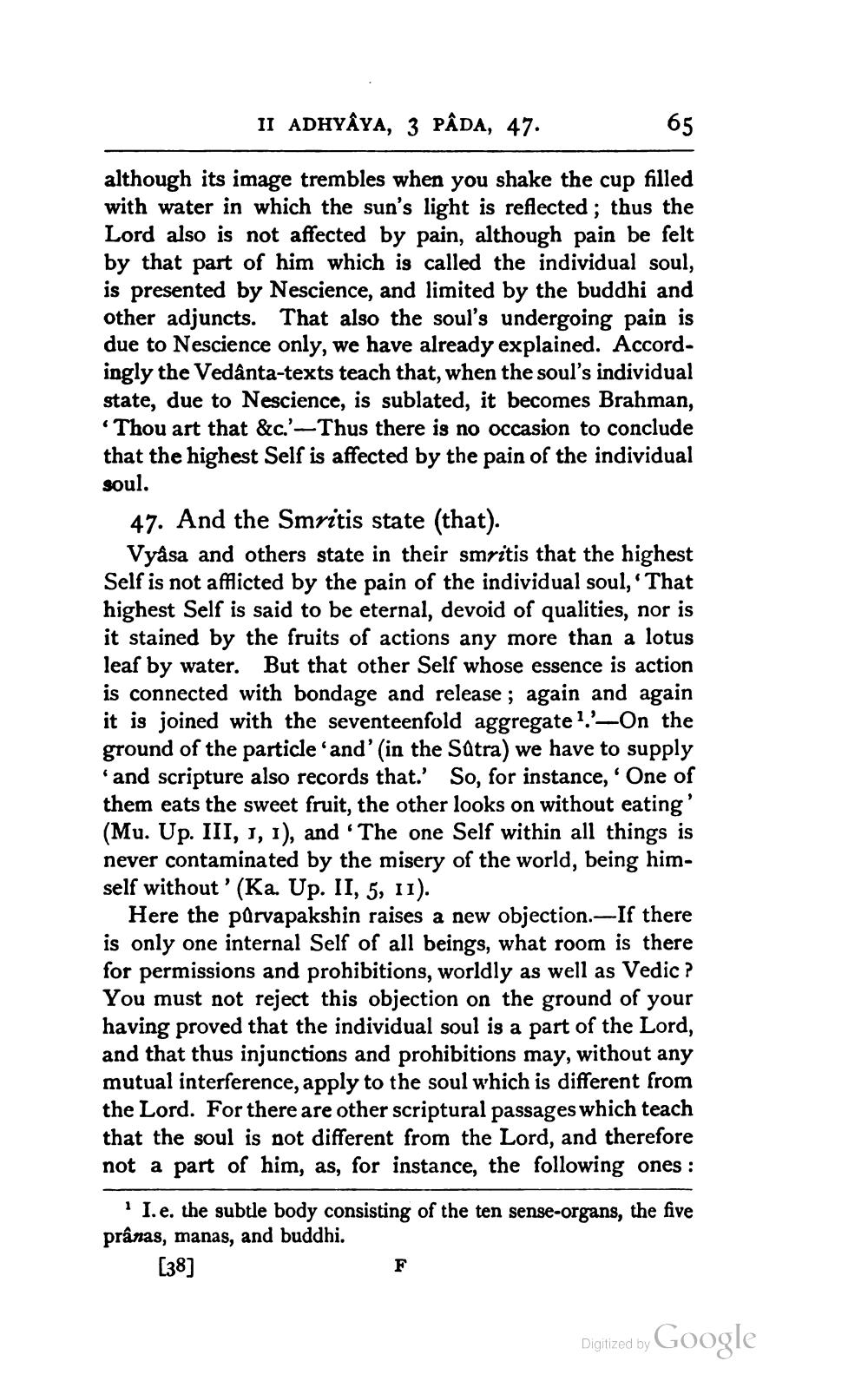________________
II ADHYÂYA, 3 PÂDA, 47.
although its image trembles when you shake the cup filled with water in which the sun's light is reflected; thus the Lord also is not affected by pain, although pain be felt by that part of him which is called the individual soul, is presented by Nescience, and limited by the buddhi and other adjuncts. That also the soul's undergoing pain is due to Nescience only, we have already explained. Accordingly the Vedanta-texts teach that, when the soul's individual state, due to Nescience, is sublated, it becomes Brahman, 'Thou art that &c.'-- Thus there is no occasion to conclude that the highest Self is affected by the pain of the individual soul.
47. And the Smritis state (that).
Vyåsa and others state in their smritis that the highest Self is not afflicted by the pain of the individual soul,' That highest Self is said to be eternal, devoid of qualities, nor is it stained by the fruits of actions any more than a lotus leaf by water. But that other Self whose essence is action is connected with bondage and release ; again and again it is joined with the seventeenfold aggregate 1.'-On the ground of the particle'and' (in the Satra) we have to supply
and scripture also records that.' So, for instance, 'One of them eats the sweet fruit, the other looks on without eating' (Mu. Up. III, 1, 1), and 'The one Self within all things is never contaminated by the misery of the world, being himself without' (Ka. Up. II, 5, 11).
Here the purvapakshin raises a new objection. If there is only one internal Self of all beings, what room is there for permissions and prohibitions, worldly as well as Vedic ? You must not reject this objection on the ground of your having proved that the individual soul is a part of the Lord, and that thus injunctions and prohibitions may, without any mutual interference, apply to the soul which is different from the Lord. For there are other scriptural passages which teach that the soul is not different from the Lord, and therefore not a part of him, as, for instance, the following ones :
I.e. the subtle body consisting of the ten sense-organs, the five prânas, manas, and buddhi.
[38]
Digitized by
Digilzed by Google




